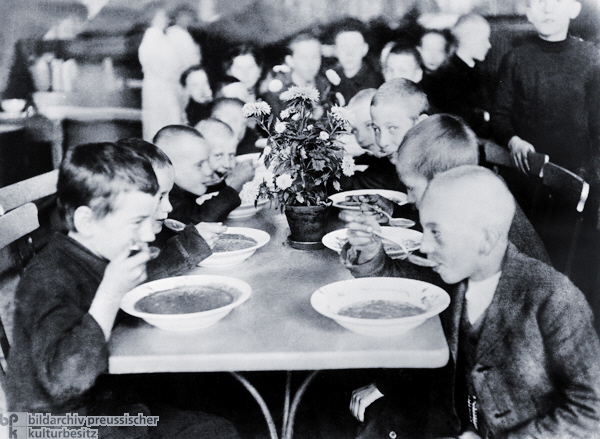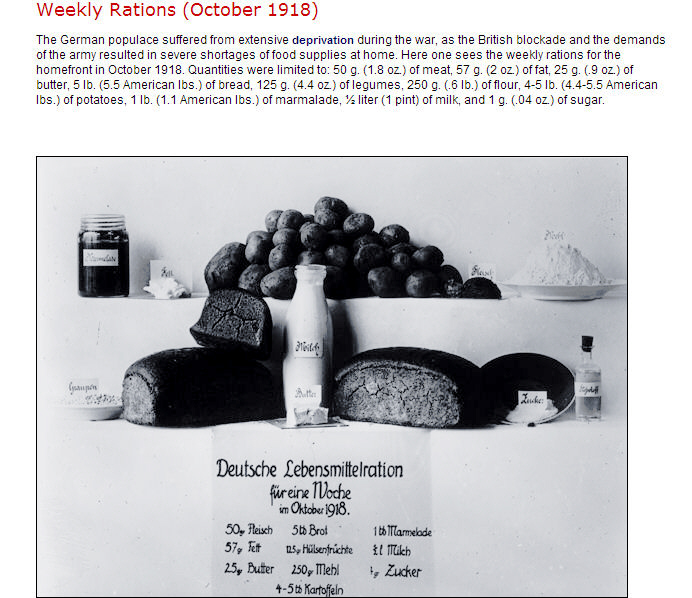Starvation is one of those unpleasant topics glossed over in most general histories of the Great War. Refugees, prisoners of war, the Armenians in Turkey, all suffered horribly. Here is another story:
The state of nutrition worsened during the course of the war in all European belligerent countries. Germany was heavily dependent on food imports, which were stopped by the Allied blockade. Additionally, the domestic production of foodstuffs suffered a serious decline. The combination of these two factors led to a massive nutrition crisis, particularly for those living in cities. Charitable organizations started soup kitchens (Kriegsküchen, literally, “war kitchens”) to mitigate the greatest need, the nutritional needs of children.
Click on Image to Expand
 |
| Children Eating in a Berlin Charity Soup Kitchen, 1917 |
Below is the weekly ration in Germany for October 1918. After the war, during the Paris Peace Conference, the Allies brutally maintained the blockade on Germany. Official statistics attributed nearly 763,000 wartime deaths in Germany to starvation caused by the Allied blockade. This figure excluded the further 150,000 German victims of the 1918 influenza pandemic, which inevitably caused disproportionate suffering among those already weakened by malnutrition and related diseases. These statistics are from British sources; other sources (I've not found German government figures) place the total dead at well over one million.
Click on Image to Expand


Some of those items seem really low (meat, flour, sugar) while others seem relatively high--bread (mostly flour), marmalade (mostly sugar). Of course the total is still very low as a weekly ration for people in northern Europe working (even on the home front work shifts) during wartime.
ReplyDeleteCaroline Cooper, an Australian, was "marooned" in Leipzig for the duration of the war. Though few could be posted, each week she wrote a letter to her family describing the increasingly difficult hunt for food and fuel as the war progressed - an account that well compliments the above article. Her letters were edited by Decie Denholm and published in 1982 under the title"Behind the Lines". Well worth reading if you can find a copy somewhere.
ReplyDelete